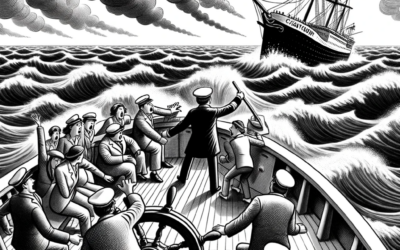Interview Part III with our guests Michelle and Dennis Reina from The Reina Trust Building Institute and authors of Trust & Betrayal in the Workplace
People often believe trust is earned over time. Is this really true? Is there a way to accelerate trust among co-workers?
There are no quick fixes to build trust- but there are quick ways to destroy it. Major intentional betrayals break trust instantaneously. Trust is earned incrementally- step by step and it is reciprocal in nature- you have to give it to get it.
Covey and many others have written on the topic of trust recently. How does your book differ from theirs?
We have been researching and practicing in this field for over 20 years developing a body of work regarding understanding the dynamics of trust, betrayal, healing and transformation in the workplace. When Michelle and I started our doctoral research back in the late 80’s, the topic was not popular.
In 1992, we founded the Reina Trust Building Institute whose mission is to study, develop and live models of trust, healing and renewal in service to the world. Michelle and I have written three books (1999, Jan. 2006, 2010) on trust, betrayal and healing, (our third on rebuilding trust is coming out this year), developed numerous statistically valid and reliable trust measuring instruments (at the individual, leader, team, organizational and customer levels), a Trust Building On-Line platform, numerous Trust Building® resources, workbooks, etc.
Inflection Point
Not until 9/11, Enron, and of course the latest economic downfall, has the topic of Trust become popular and in demand- because there is so little of it- at all levels, in all areas of society and the globe. With this popularity, a lot of people have recently jumped on the ‘trust bandwagon’ becoming ‘instant experts’ because they saw the need and an opportunity to make money. (Much like they did in the 80s with the quality movement).
Learning and living Trust Building work is Michelle and my life’s work, purpose and passion. Michelle and I have devoted our lives and are committed to making a contribution to the field and being of service to leaders, their people and their organizations around the world.
There have been numerous books on how to build trust written in the last 4-5 years after both our books had been published. Our book goes where the others do not or are afraid to go- we name the ‘elephant in the room’- betrayal, which these authors are not overtly talking about. Yet people in the workplace are constantly at the effect of betrayal and have to deal with the consequences of.
In our book we also identify the seven steps for healing and help leaders and their employees rebuild trust. We identify the 16 core behaviors that are essential for leaders to practice to build trust and be trustworthy leaders. We name the four core characteristics that transform the level of trust in an organization, so their organizations become a place where employees WANT to work and produce.
What are the different elements of trust that can be built upon?
The three types of Transactional Trust are Contractual
- – The Trust of Character, Communication
- – The Trust of Disclosure and Competence Trust
- – The Trust of Capability.
Each of these types has corresponding behaviors (the sixteen essential behaviors that build trust are as follows).
Contractual- The Trust of Character:
- Manage expectations
- Establish boundaries
- Delegate appropriately
- Operate with mutually serving intentions
- Keep agreement
- Be consistent in behavior
Communication- The Trust of Disclosure:
- Share information
- Tell the truth
- Admit mistakes
- Give and receive constructive feedback
- Maintain confidentiality
- Speak with good purpose
Competence Trust- The Trust of Capability:
- Acknowledge people’s skills
- Allow people to make decisions
- Involve others and seek their input
- Help people learn new skills
What do you find that leaders struggle most with when they are not willing to trust co-workers who are in fact trust worthy?
What you are talking about here is one’s own capacity for trust. If a leader has a low capacity for trust, they may have difficulty trusting another even if this individual is a trustworthy individual, because they have difficulty trusting themselves. You have to give trust to get trust. If a leader has difficulty trusting oneself (giving trust to oneself), he/she may have difficulty giving trust or trusting another.
What steps should a leader take to build a Trusting culture?
Practice the three types of Transactional Trust and the corresponding sixteen Trust Building behaviors. (see above)
What are the de-railers to trust within an organization?
For fear of repeating myself again: The key de-railers to trust within an organization are minor betrayals that happen everyday and erode trust over time. They are most insidious because they often do not get addressed; however they are definitely noticed. Behaviors such as gossip, not showing up to meetings on time, not delivering as promised, shunning, work arounds, leaving people out of communication that should have been a part of, etc. are examples of minor betrayals. Minor betrayals accumulate over time and become major. Our research shows that 90% of employees experience these types of betrayal frequently.
What has been your favorite assignment in helping an organization to enhance their ability to trust? (Read response in next blog post)
Related Posts:
Leadership Assessment – What type of leader are you?



